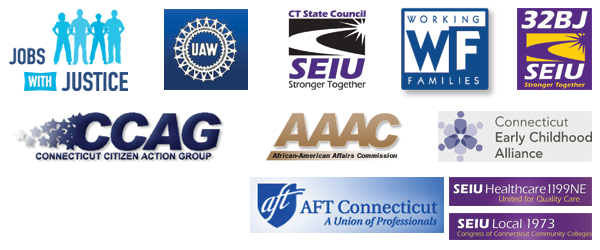The Low-Wage Employer fee will require companies with 500 or more employees to pay a reasonable hourly-based fee (Low-Wage Employer Fee) for every worker earning $15 or less per hour. This legislation directs the Legislature to appropriate revenue from the fee to the Department of Social Services (DSS) to support and improve consumer-directed services for the elderly and disabled, and to the Office of Early Childhood (OEC) to increase access to and to support and improve childcare and early learning programs for the children of low-wage workers. Franchisee employment counts toward the franchisor for the purposes of determining coverage. The Labor Commissioner is responsible for fee collection and proposing regulations to this effect.
Public Act 15-5, Section 485, establishes the CT Low Wage Employer Advisory Board. Today, this board works within the Department of Labor (DOL) with the Labor Commissioner, DDS, DSS and OEC to advise them on matters regarding:
- the causes and effects of state residents when businesses pay low wages,
- how many working state residents are on public assistance programs,
- to ensure working state residents can achieve stable living standard working a minimum wage rate,
- to improve the quality of public assistance programs of many working state residents,
- the wages and working conditions of the workforce that delivers services to low-wage working families, and
- how large employers rely on state-funded public assistance programs.
The board must also:
- Consider any legislative and agency proposals or action regarding these matters,
- Study and note:
- causes/effects of large employers paying low wages, and the subsequent reliance on public assistance;
- creating minimum wage rates needed for working state residents that would cover the cost of everyday life, without state-funded public assistance programs;
- benefits that employers receive from public assistance benefits provided to the workforce when they fail to give their workforce adequate wages or benefits;
- Usher in the conversation between working state residents, who provide or receive public assistance, employers and state agencies to improve the overall dialogue of this pressing issue,
- To advise and inform the Labor Commissioner, state agencies and officials on politics and procedures related to the board’s findings.
